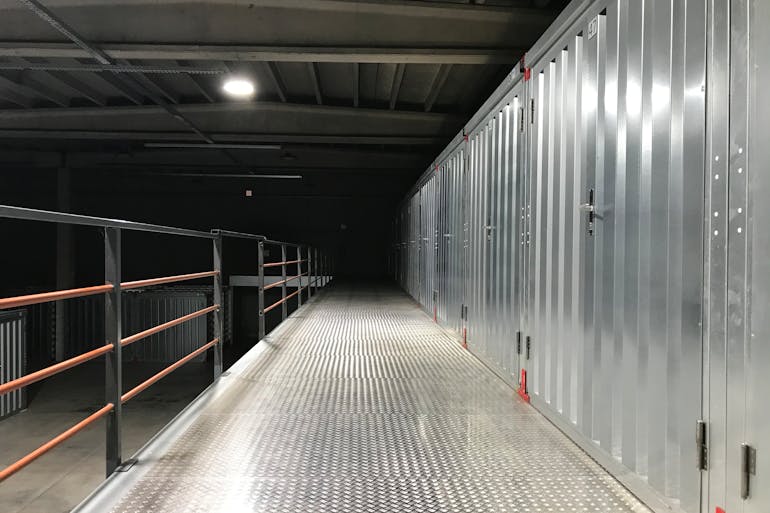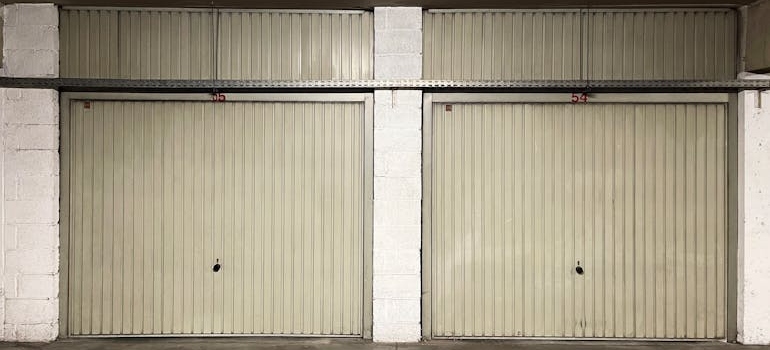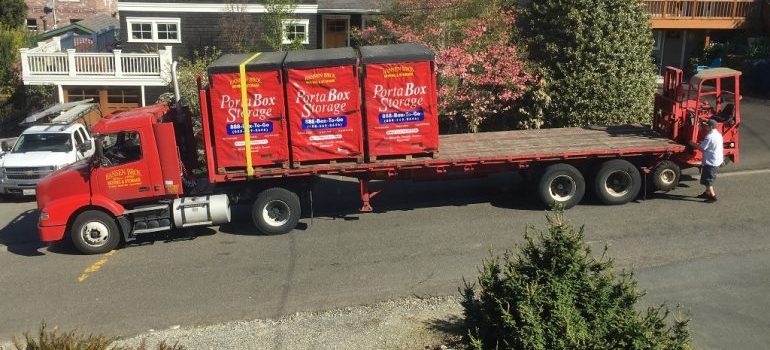How to choose between different types of storage
get a quote
Choosing the right storage solution can significantly simplify your life, whether you’re managing business inventory, facing a home renovation, or dealing with life transitions such as moves or downsizing. This article by Lynnwood self storage experts should help you choose between different types of storage by exploring three primary options: self-storage, traditional storage, and portable storage units. Each solution offers unique benefits and challenges suited to different needs and situations. Our aim is to assist you in selecting an option that best fits your space requirements, accessibility needs, and budget by understanding the nuances of each and ensuring your possessions are stored safely and efficiently.
Types of physical storage solutions
When considering efficiently storing your possessions or inventory, you might ask, “What are the 3 types of storage?” The options available to you include self-storage units, traditional warehouse storage, and portable storage units. Each of these storage types has been developed to meet specific needs and scenarios, offering unique advantages and potential drawbacks. Let’s explore each one in detail to help you make an informed decision.
Self-storage units
Self-storage units are one of the most flexible and commonly used storage solutions available. They offer a secure, private space that you can rent monthly or annually depending on your needs. These units range in size from small lockers to large rooms and are typically self-managed, meaning you bring your items to the unit and organize them as you see fit.
The option is ideal for personal and business use, particularly when accessing your items frequently. Advantages include convenience and accessibility, while a potential drawback is an ongoing cost if you require long-term storage.

Traditional storage (warehouses)
Traditional storage often refers to warehouse storage, which is usually helpful to businesses for large-scale storage needs. Warehouses offer expansive spaces that can accommodate a wide range of goods, such as inventory, large equipment, or archived records.
This type of storage may offer specialized services like temperature control, inventory management, and security, making it suitable for items that require specific conditions. The primary advantage of warehouse storage is its capacity and the specialized services it can provide. Still, it can be more expensive and less accessible for everyday needs or smaller-scale storage.
Portable storage units
Portable storage units provide a unique combination of convenience and flexibility. They arrive at your location, where you can fill them at your leisure. Once packed, they are transported to a storage facility. Mobile storage containers in Seattle are especially useful for temporary storage during home renovations or for moving between locations.
Also, they allow easy access to your belongings and eliminate the need to transport items to a storage facility yourself. The main advantages are their convenience and mobility, though costs can vary widely based on rental duration and transportation fees. Each of these storage types offers distinct benefits, so understanding your specific needs—whether they pertain to size, accessibility, duration, or special requirements—is essential for choosing the right option.

Factors to consider when choosing a storage solution
Selecting the right storage solution involves weighing several key factors to ensure that the chosen option best suits your needs. Here are some critical aspects to keep in mind while evaluating the types of storage units to ensure you make the most informed decision.
Cost considerations
The cost of storage can vary significantly based on the type of unit, its size, and the rental duration. Self-storage units typically offer a range of sizes, with pricing proportional to size—smaller units are less expensive, while larger spaces cost more. Warehouse storage can be cost-effective for storing large quantities but may include additional fees for specialized services like climate control or specific handling.
Portable self storage in West Seattle often has variable costs based on how long you keep the unit and if you require transportation services. Evaluating your budget against these cost factors will help you choose between different types of storage more easily.
Security features
Security is a paramount concern when storing valuable or sensitive items. Different types of storage facilities offer varying levels of security. Self-storage units generally provide basic security measures such as gated access and surveillance cameras.
Warehouses might offer enhanced security features, including 24-hour monitoring, on-site personnel, and advanced fire suppression systems. Portable storage units have secure locks and allow for personal monitoring while kept on your property during packing. Consider what level of security is necessary for the items you plan to store.

Environmental factors
Certain items like electronics, antiques, or important documents require specific environmental conditions to prevent damage. Climate-controlled units are crucial for protecting against extreme temperatures and humidity. Evaluate whether the types of storage containers and facilities you are considering offer climate control.
Furthermore, you should assess the storage site’s overall cleanliness and pest management practices. Portable units are particularly versatile, as the company can bring them to your location on demand. You can pack them at your convenience, and then they transport the units back to a facility that provides temperature control.
Accessibility options
How often you need to access your stored items should also influence your choice of storage. Self-storage units are ideal for frequent access, as most facilities allow customer access seven days a week. Traditional storage warehouses may have more restrictive access, typically during business hours, which might be suitable for long-term storage that doesn’t require regular retrieval. Short-term storage Seattle units offer the highest level of convenience for access, as they can be placed directly on your property, packed, and then transported to or from a storage facility as needed.
Which storage type is right for you?
Getting the right storage solution requires a thorough understanding of how to choose between different types of storage and carefully considering your specific needs. Whether you opt for self-storage units, traditional warehouse storage, or portable storage units, each offers distinct advantages and may suit different requirements related to cost, security, environmental conditions, and accessibility. After all, the best storage solution is one that aligns seamlessly with your lifestyle and budget. The whole idea is to make your storage experience as stress-free as possible.
